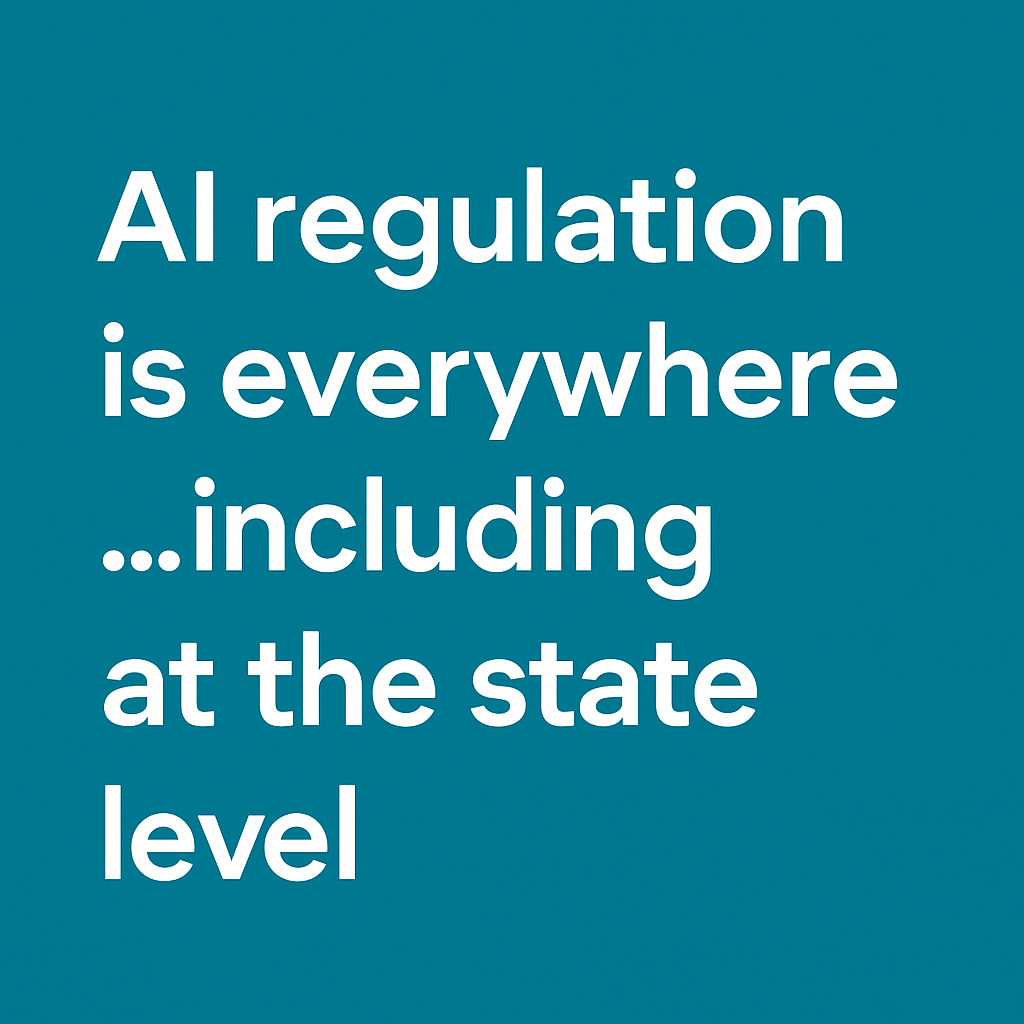2024 was a consequential year in many ways, and 2025 shows no signs of being different. Last year, we briefly wrote about trends to watch in the regulation of cryptocurrency, broker-dealers, and investment advisors in 2024. As such, let’s revisit these points, and take a look at what 2025 is likely to bring.
Cryptocurrency in 2025
Regulatory actions concerning cryptocurrency continued and even accelerated in 2024. The SEC brought at least 19 crypto-related actions, both in its own administrative tribunals and in federal court. Major cases—including Coinbase —saw significant rulings.
In this respect, 2025 is likely to be different than 2024. The incoming Trump administration has signaled its openness and even enthusiasm for cryptocurrency, while known crypto enthusiasts like Elon Musk provide advice to the President-Elect. As such, expect SEC crypto enforcement actions in 2025 to be more restrained, and to focus on anti-fraud cases.
Even though government enforcement may be stepped back in 2025, that’s not the end of the story. With surging crypto prices, private plaintiffs may have additional incentive to bring their own claims. Several previous such cases (such as Sarcuni v. bZx DAO and Samuels v. Lido DAO) have produced rulings that distributed autonomous organizations, or “DAOs,” may qualify as state-law general partnerships (with potential joint and several liability for DAO members). As such, crypto project backers will likely need to ensure that they have adequate legal “wrappers” for their projects (i.e., legal entities with limited liability to provide corporate personhood). Expect to see further development on this point in 2025.
Additionally, escalating revenues may draw the attention of the IRS. In June, the Treasury Department and IRS issued final regulations requiring U.S. custodial digital assets brokers to report sales and exchanges of digital assets, including cryptocurrency. These regulations apply to operators of custodial digital asset trading platforms, digital asset hosted wallet providers, digital asset kiosks, and certain processors of digital asset payments. Gross proceeds reporting by in scope brokers will generally begin for transactions occurring on or after January 1, 2025, with cost basis reporting for certain transactions to follow in 2026.
New Marketing Rule: guidance and enforcement actions
The SEC’s New Marketing Rule compliance period started in November 2022, and we expected in last year’s post that we would see an increased number of enforcement actions by the SEC in 2024. This has panned out: in April, the SEC announced charges against five investment advisors for Marketing Rule violations. This was followed by charges against nine investment advisors in September. These actions reflect the SEC’s ongoing commitment to enforcing the new rule.
It’s crucial to distinguish between enforcement actions and the SEC’s examination priorities. Marketing Rule enforcement is specifically called out in the 2025 examination priorities, published by the Division of Examinations in October (as it was in the 2024 examination priorities). However, under the leadership of Chair Gary Gensler’s successor, there may be a shift in how the SEC approaches its examinations. While the focus on Marketing Rule compliance is likely to remain, the posture and scope of these examinations could evolve with the change in leadership. Despite potential changes in examination strategy, the ongoing enforcement activity suggests that additional actions in 2025 are probable as the SEC continues to scrutinize compliance.
Significant market participants as broker-dealers
In February, the SEC adopted rules regulating market participants who engage in certain dealer roles, in particular those with a business model resembling that of market-makers. Affected market participants were required to register with the SEC, become members of a self-regulatory organization (SRO), and comply with federal securities laws and regulatory obligations. These rules had the potential to impose significant administrative burdens on a range of market participants, particularly market makers on cryptocurrency exchanges.
This all changed in late November, when two rulings in the Northern District of Texas found that the SEC had exceeded its statutory authority, and vacated the new regulations. While the SEC could still appeal those decisions, new leadership seems less likely to do so.
AI investment advice
The AI boom has continued to make the news, with new advances seeming to occur daily. While “robo-advisors” have long seen significant use with mainstream audiences, it is anticipated that new technologies, such as large language models (LLMs), could substantially improve the power and effectiveness of these tools. In last year’s roundup, we expected that given the bleeding-edge nature of LLMs and similar technologies, most robo-advisors targeted at mainstream audiences would continue to use older technologies. But, we anticipated that the first generation of AI-powered robo-advisors, using language models (similar to GPT-4) might be introduced for public use.
This has broadly proven to be the case. While JPMorgan, Bloomberg, and other major players in the financial space have devoted considerable resources to developing their own systems, smaller firms have released or improved their own generative AI models to engage with customers. Expect this trend to ramp up in 2025, especially as large firms continue to develop and release their own systems.
ESG
Environmental, social, and governance (ESG) factors have risen in importance for investors in recent years, and regulators are responding by proposing new requirements to make ESG disclosures more consistent and comparable. In 2022, the SEC proposed several rules enhancing disclosure requirements around climate- and ESG-related investment products.
In March, the SEC adopted rules to enhance and standardize climate-related disclosures by public companies and in public offerings. But then, just a month later, the SEC paused implementation of the rules after being sued by 25 states and other entities.
As matters stand as of the writing of this article, the case continues to be litigated in the 8th Circuit. The outcome of this case remains uncertain, particularly with the incoming administration, which has signaled a shift in approach from the Biden administration. Whether this shift will manifest through changes in litigation strategy or via new rulemaking is still to be determined. As the legal challenges unfold, it’s unclear whether the SEC will prioritize enforcement of its new ESG regulations in 2025, particularly given the potential for a change in direction under the new leadership.
Legal rulings: 2024 and 2025
In a general sense, the judicial landscape for 2025 looks less friendly to regulators than 2024. Two major cases heard by the US Supreme Court, both in June of 2024, are likely to significantly curtail the ability of agencies to enforce their regulations.
Loper Bright Enterprises v. Raimondo overruled “Chevron deference”—the longstanding principle that required courts to defer to an agency’s reasonable interpretation of ambiguous laws within its enforcement purview. However, it’s important to note that this shift does not eliminate all forms of judicial deference to agencies. Courts are still required to defer to agencies in specific contexts, such as when the agency exercises discretion or engages in fact-finding. Therefore, while Loper Bright represents a significant curtailing of agencies’ interpretive power, it is not a sweeping solution for challenging federal agency rulemaking or authority across the board. The decision’s impact is largely confined to cases involving statutory ambiguity, where courts are now more likely to scrutinize, rather than defer to, agency interpretations. As a result, we can expect increased judicial skepticism in cases involving challenges to expansive agency rulemaking, but this skepticism will not extend to all areas of agency power.
SEC v. Jarkesy found that when the SEC seeks civil penalties against a defendant for securities fraud, the Seventh Amendment entitles the defendant to a jury trial, and thus the SEC must bring the action in federal court. As the principle in Jarkesy is likely to apply in any case where the cause of action resembles a “suit at common law” (including cases where civil monetary penalties are sought), the ability of regulators to bring cases in their own administrative tribunals is likely to be hampered. 2025 will probably see fewer cases in administrative tribunals, but potentially an increased number of cases heard in federal court.
Another case, decided in November by the DC Circuit, may also have long-term effects. Alpine Securities Corp. v. FINRA found that the Financial Industry Regulatory Authority (“FINRA”), the self-regulatory organization for a large segment of the securities industry, could not expel a member without the opportunity for SEC review. Such an expulsion, without adequate federal oversight, was found to violate the private nondelegation doctrine. While this ruling may be appealed, the implications for industry self-regulatory organizations may be profound.
Looking ahead to 2025
The issue of how to classify cryptographic assets (as securities or commodities) continues to be litigated, as well as the matter of which federal agency will regulate them. Recent crypto-related high-profile cases and scandals (including FTX) may provide an ongoing impetus for cryptographic asset regulation.
Last year, we believed that ongoing regulatory pressure might push crypto activity offshore. Given the changes 2025 is likely to bring, that may no longer be the case. Of course, all of this can change in an instant. On-point appellate caselaw in favor of the SEC’s recent stance on crypto (or firmly rejecting it) may change the crypto legal landscape overnight. We look forward to revisiting these matters in the near future, and evaluating what we got right and what we got wrong.
The opinions provided are those of the author and not necessarily those of Fidelity Investments or its affiliates. Fidelity does not assume any duty to update any of the information. Fidelity and any other third parties are independent entities and not affiliated. Mentioning them does not suggest a recommendation or endorsement by Fidelity.
1181426.1.0




-1.png)

